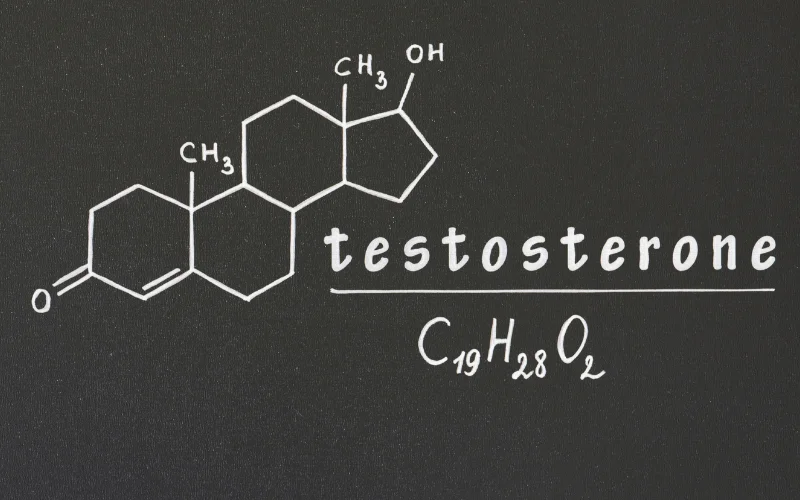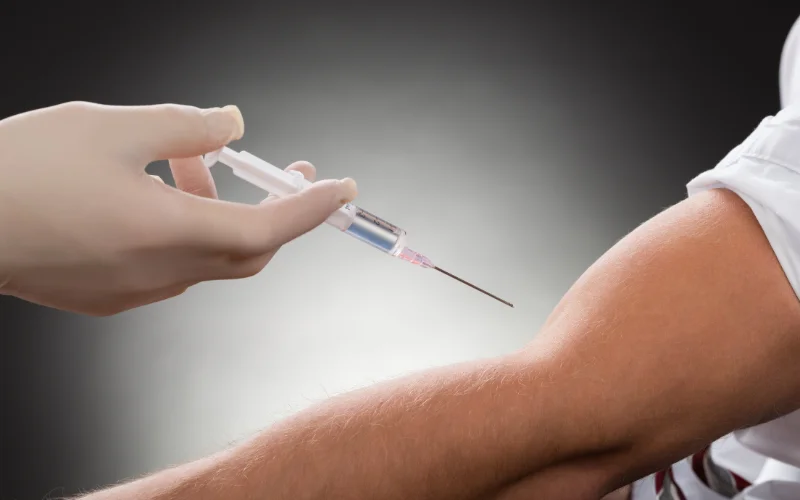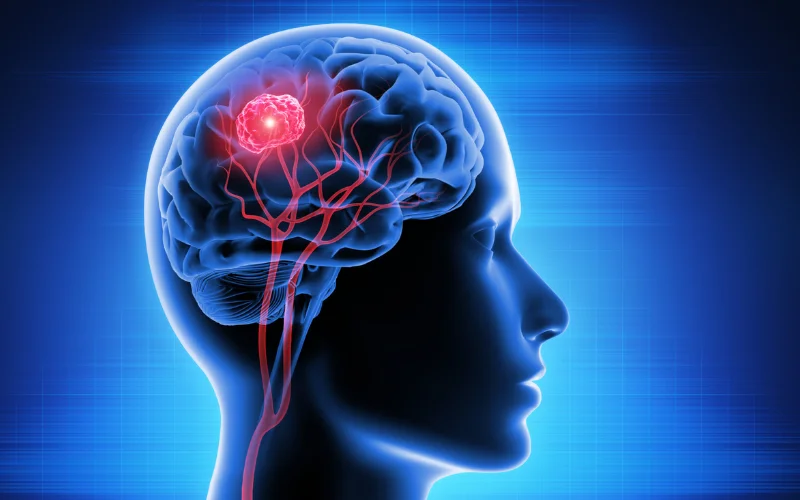Testosterone, often referred to as the male hormone, plays a significant role in a man’s health and well-being. While it is commonly associated with masculinity, strength, and vitality, an excess of testosterone can sometimes lead to undesirable effects. Understanding the signs of high testosterone in a man is crucial for maintaining hormonal balance and ensuring overall health.
This article delves into the physical, behavioral, health-related, and psychological symptoms of elevated testosterone levels, providing a comprehensive guide for recognizing and addressing this condition. Additionally, we will explore the potential causes of high testosterone and discuss whether certain behaviors, such as masturbation, can influence testosterone levels.
What is Testosterone?

Testosterone is a steroid hormone primarily produced in the testes in men and in smaller amounts in the ovaries and adrenal glands in women. It is responsible for the development of male reproductive tissues, the increase in muscle and bone mass, and the growth of body hair. Additionally, testosterone plays a key role in mood regulation, energy levels, and overall meditation benefits for well-being.
What are Normal Testosterone Levels?
Normal testosterone levels vary depending on age and individual health factors. For adult men, the typical range is between 300 to 1,000 nanograms per deciliter (ng/dL). Levels can fluctuate throughout the day, usually peaking in the morning and gradually declining by evening. Maintaining testosterone within this range is crucial for optimal health and well-being.
Causes of High Testosterone in a Man

High testosterone levels in men can be caused by a variety of factors. These include genetic predisposition, the use of anabolic steroids, certain medical conditions such as polycystic ovary syndrome (PCOS) in women, and tumors in the adrenal gland or testes. Identifying the underlying cause is essential for effective treatment and management.
Genetic Factors
Genetic predisposition can play a significant role in high testosterone levels. Some men naturally produce more testosterone due to their genetic makeup, which can lead to elevated levels without any external influences.
Use of Anabolic Steroids
The use of anabolic steroids is a common cause of high testosterone levels. These synthetic substances mimic the effects of testosterone and are often used to enhance athletic performance or muscle growth. However, they can lead to dangerously high levels of testosterone and various health complications.
Medical Conditions
Certain medical conditions can also contribute to high testosterone levels. Tumors in the adrenal gland or testes, hyperthyroidism, and polycystic ovary syndrome (in women) are some examples of conditions that can cause elevated testosterone.
Physical Signs of High Testosterone

Physical signs of high testosterone are often the most noticeable and can significantly impact a man’s appearance and bodily functions. These signs are typically due to testosterone’s role in promoting muscle growth, fat metabolism, and skin health.
Increased Muscle Mass
One of the most noticeable signs of high testosterone in a man is an increase in muscle mass. Testosterone promotes protein synthesis, which leads to muscle growth. Men with elevated testosterone levels may experience rapid muscle gains even without significant changes in their exercise routines.
Reduced Body Fat
High testosterone levels can also lead to a reduction in body fat. This hormone helps regulate fat metabolism, making it easier for the body to burn fat and maintain a lean physique. Men with high testosterone often have a more defined and muscular appearance.
Acne and Oily Skin
Another common physical sign of high testosterone is the development of acne and oily skin. Testosterone stimulates the sebaceous glands, leading to increased oil production. This excess oil can clog pores and result in acne breakouts, particularly on the face, back, and chest.
Hair Growth
Elevated testosterone levels can cause increased hair growth on the body and face. Men may notice thicker and more abundant facial hair, as well as increased hair growth on the chest, back, and arms. However, it’s important to note that excessive testosterone can also contribute to male pattern baldness.
Behavioral Signs of High Testosterone

Behavioral changes due to high testosterone can affect a man’s interactions and decision-making processes. These signs are often linked to testosterone’s influence on mood and behavior.
Aggressiveness
High testosterone levels are often associated with increased aggression and irritability. Men with elevated testosterone may exhibit more aggressive behavior, have a shorter temper, and be more prone to confrontations.
Risk-Taking Behavior
Testosterone is known to influence risk-taking behavior. Men with high testosterone levels may engage in more adventurous or risky activities, often seeking out new and exciting experiences. This can include gambling, extreme sports, or other high-risk endeavors.
Increased Libido
An increase in libido is a well-known sign of high testosterone in a man. Elevated testosterone levels can lead to heightened sexual desire and more frequent sexual thoughts. While a healthy libido is beneficial, excessively high levels can sometimes result in inappropriate or risky sexual behavior.
Health-Related Signs of High Testosterone

High testosterone levels can have several implications for a man’s health, affecting various systems in the body. These signs can lead to serious health conditions if not addressed promptly.
High Blood Pressure
High testosterone levels can contribute to elevated blood pressure. Testosterone affects the cardiovascular system, and excessive levels can lead to hypertension, increasing the risk of heart disease and stroke.
Sleep Apnea
Sleep apnea is a condition characterized by interrupted breathing during sleep. Men with high testosterone levels are at a greater risk of developing sleep apnea, which can lead to poor sleep quality, daytime fatigue, and other health complications.
Liver Damage
Excessive testosterone, particularly when introduced through anabolic steroids, can cause liver damage. The liver metabolizes hormones, and an overload of testosterone can lead to liver dysfunction, jaundice, and other serious health issues.
Psychological Signs of High Testosterone

Psychological signs of high testosterone can significantly impact a man’s mental health and emotional well-being. These signs are often linked to the hormone’s influence on mood regulation and stress response.
Mood Swings
Men with high testosterone levels may experience frequent mood swings. This can include sudden shifts from happiness to irritability or anger, often without any apparent reason. These mood fluctuations can affect personal relationships and overall mental well-being.
Anxiety and Stress
Elevated testosterone levels can contribute to increased anxiety and stress. Men may feel more on edge, have difficulty relaxing, and experience heightened levels of stress. This can impact both mental and physical health, leading to a range of complications. Practicing activities that promote relaxation, such as meditation can help mitigate these effects.
Depression
While testosterone is often linked to positive mood and energy levels, excessively high levels can sometimes lead to depression. Men with high testosterone may feel persistently sad, lose interest in activities they once enjoyed, and experience changes in appetite and sleep patterns.
Ways to Maintain Healthy Levels of Testosterone

Maintaining healthy testosterone levels is crucial for overall well-being. Here are some effective strategies to help keep your testosterone levels within the normal range:
- Balanced Diet: Eating a balanced diet rich in essential nutrients can help regulate testosterone levels. Include foods high in zinc, vitamin D, and healthy fats, such as lean meats, fish, nuts, and seeds.
- Regular Exercise: Engaging in regular physical activity, particularly strength training and high-intensity interval training (HIIT), can boost testosterone levels. Aim for at least 150 minutes of moderate exercise or 75 minutes of vigorous exercise per week.
- Adequate Sleep: Getting enough sleep is vital for hormone regulation. Aim for 7-9 hours of quality sleep per night to support healthy testosterone levels.
- Stress Management: Chronic stress can negatively impact testosterone levels. Practice stress management techniques such as yoga, meditation, and deep breathing exercises to keep stress levels in check.
Does Masturbating Reduce Testosterone?
There is a common misconception that masturbating can significantly reduce testosterone levels. However, research indicates that masturbation does not have a long-term impact on testosterone levels. While there may be a temporary fluctuation immediately after ejaculation, these changes are short-lived and do not lead to a sustained decrease in testosterone. Therefore, masturbating is unlikely to reduce testosterone levels to a degree that would impact overall health or cause noticeable changes in behavior or physical appearance.
When to See a Doctor

If you suspect that you have high testosterone levels, it is essential to consult a healthcare professional. Seek medical advice if you experience any of the following symptoms:
- Persistent acne or oily skin
- Unexplained aggression or irritability
- Rapid muscle gains without significant changes in exercise routines
- Increased body or facial hair growth
- High blood pressure or other cardiovascular issues
- Sleep disturbances or symptoms of sleep apnea
- Mood swings, anxiety, or depression
A healthcare provider can perform blood tests to measure your testosterone levels and recommend appropriate treatment options if necessary.
Conclusion
Understanding the signs of high testosterone in a man is essential for maintaining hormonal balance and overall health. While testosterone is vital for various bodily functions, excessively high levels can lead to a range of physical, behavioral, and health-related issues. If you suspect that you or someone you know may have elevated testosterone levels, it is crucial to seek medical advice. A healthcare professional can provide appropriate testing and guidance to manage and address any potential complications.
FAQs
What causes high testosterone levels in men?
High testosterone levels in men can be caused by various factors, including genetic predisposition, the use of anabolic steroids, certain medical conditions, and tumors in the adrenal gland or testes. It is essential to identify the underlying cause to address the issue effectively.
Can high testosterone levels be treated?
Yes, high testosterone levels can be treated. Treatment options may include lifestyle changes, medication, or addressing underlying medical conditions. A healthcare professional can provide personalized recommendations based on the individual’s specific situation.
Is high testosterone always harmful?
Not necessarily. While excessively high testosterone levels can lead to various health issues, having moderately high levels within the normal range can be beneficial for muscle growth, libido, and overall well-being. It is important to maintain a balance and seek medical advice if you experience any concerning symptoms.







